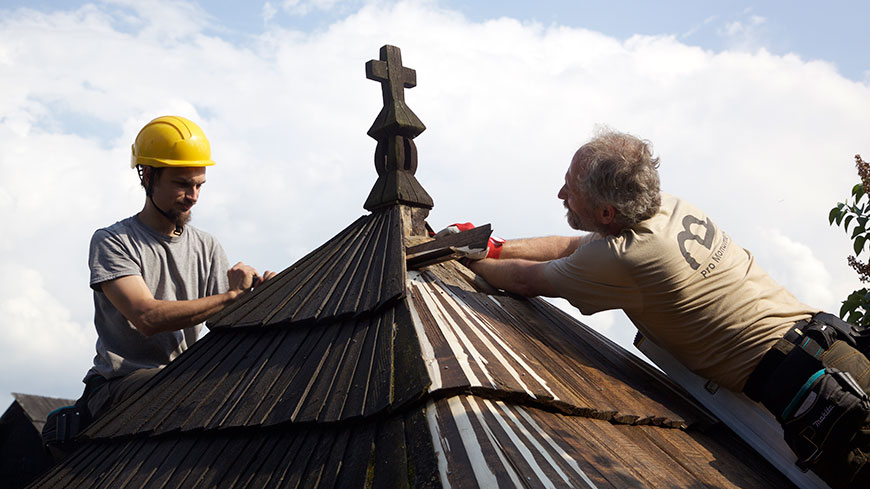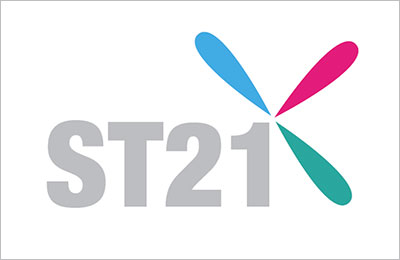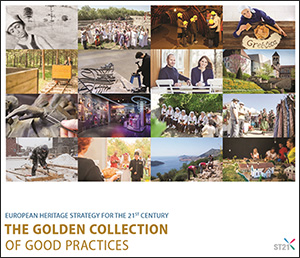Location of the initiative:

Relation to Strategy 21 Recommendations:
K7 - Ensure that the knowledge and skills involved in heritage trades are passed on
Time span of the initiative:
2014-2021
Brief description of the initiative:
Project Pro Monumenta is a project focused on preventive maintenance of the immovable cultural monuments and it represents one of the main tasks of the governmental strategy „Conception of protecting the monument fund in the Slovak Republic”. It has been financially supported in the frame of the call of EEA and the Norwegian Financial Mechanism, Programme: Preservation and revitalization of cultural and natural heritage, promotion of diversity in the field of culture and art in the frame of European cultural heritage and also from the resources of the state budget. The project’s implementation started with publicly accessible monuments owned by the state, local government and church, later on during the sustainable period (since January 2017) its will be extended on monuments in the ownership of other legal or physical persons (with minor financial contribution of the owner). The project webpage contains an online form for monument monitoring applicants, through which owners of monuments may apply for the relevant service. The Monuments Board of the Slovak Republic or its respective regional offices are in charge of selecting monuments for participation in the project, based on updated knowledge of their values, state of preservation and need for safeguarding intervention.
As part of the project, 3 teams with 3 staff members each were established to evenly cover geographical territory of the whole Slovakia. There is one technological expert – coordinator and one project manager of the whole project. Altogether, there are ten staff members working chiefly on site and one person for project management and coordination. Fundamental project activities involve monument monitoring on site, elaboration of monitoring report, drafting of recommendation and small defect repair. During the first months of project implementation, initial training and specialized courses were conducted – required by law, but mainly those which qualify monitoring team members for necessary work. As a part of monument assessment, the monitoring/inspection teams identify and repair easy-to-mend defects which have led or may lead to monument deterioration. These mainly include basic roofing repair (replacement or shifting of several shingles, tiles, etc.), repairs of chimney, rainwater drains, fixing of lightning conductors, etc. The integral part of the teams’ work is the educative element which includes advice to monument owners/administrators about adequate ways to mend small defects and practical examples of repairs and cleaning work. Larger scope of damage
is documented in the monument technical report. The technical reports are processed in line with the manual – software application – right on the spot via sturdy tablets and complemented by visual display (photos, video), measurement data (taken from thermal imaging camera, hygrometer, etc.), preparation and adjustment of material needed for simple repair. If necessary, samples are taken for further assessment (outstanding monument or its part, persisting problems, etc.). Important part of the project plan is drafting new guidelines for monument owners – 7 volumes based on the type of monuments – to be publicly accessible at the Slovak Monuments Board’s website and project webpage. Guidelines describe steps necessary to be taken for self-monitoring and basic repair of selected parts of immovable property as well as recommendations for basic maintenance and repair.
In co-operation with respective Regional Monuments Board, once a year a seminar is organised in the monitoring team’s location for monument owners and administrators. Such seminars also serve as events conveying information about the project to the public.
Objectives of the initiative:
- Building the system of preventive monitoring of immovable natural cultural monuments listed in the Central Register of Monuments.
- Involving the owner, the users, the service personnel = build the “early warning system”
- Creating a tool for educating the public to systematic care and usual maintenance which shall prevent and save complex and cost-demanding renewal connected with high financial costs and negative interventions into the material and historical substance of monuments
Brief assessment of the initiative’s results:
The initiative of preventive maintenance originates from the Netherlands, where it has yielded such good results that it now constitutes a case of best practice and has inspired projects worldwide. The service implemented through the project Pro Monumenta according to the Dutch model has proven highly beneficial as it minimises restoration costs because regular maintenance to immovable monuments is cheaper than restoration carried out once in several decades. The positive impact is even stronger for countries in transition, such as Slovakia, where due to a lack of funds and disrupted continuity of ownership the latter practice used to be quite common and resulted in serious damage to historic monuments. The project Pro Monumenta was implemented from 1 January 2014 and is scheduled to terminate on 31 December 2016 with a subsequent compulsory sustainable period of at least 5 years. The project is expected to have a high level of sustainability in Slovakia because both the current government’s declaration for 2016 - 2020 and the governmental strategy for the monuments protection up to 2020 place emphasis on the conservation of historic monuments. Three mobile teams were established in Trnava (western Slovakia), Banská Bystrica (central Slovakia) and Poprad (eastern Slovakia), fully trained and equipped with the capacity to identify and repair easy-to-mend defects at historic monuments. Universal methodology for monitoring of the monument’s technical state and recommendations for maintenance or potential repair were created in collaboration with experts on monument protection in SR.
Concerning the countable indicators of the project: 120 monuments were monitored until December 2015 and 90 more will be monitored until the end 2016 (in addition, 600 more are planned in the following 5 years), 8 seminars for owners and administrators of monuments were organized and 7 electronic guidelines for repair and maintenance were issued. To facilitate the dissemination of awareness about the project, a specific website www.promonumenta.sk was created to serve as a source of information and documentation as well as a platform for communication among all parties involved. The financial allocation provided for this project from 01/2014 to 12/2016 reached the amount of 952,056 €.
Its most appreciated benefits contain:
- starting of systematic continuous maintenance of immovable cultural monuments
- raise of awareness about importance of maintenance, which is more effective, friendlier to the heritage and cheaper than large general reconstruction of the monument
- education in using correct materials, procedures and techniques in the process of reconstruction of historical monuments in order to maintain the heritage values
Online resources
Contact
Monuments Board of the Slovak Republic
Preventive Maintenance of Monuments Department
Branislav Rezník (Pro Monumenta project manager) – Pavol Ižvolt (technical manager)
Cesta na Červený most 6
814 06 Bratislava
Slovak Republic
[email protected] / [email protected]





